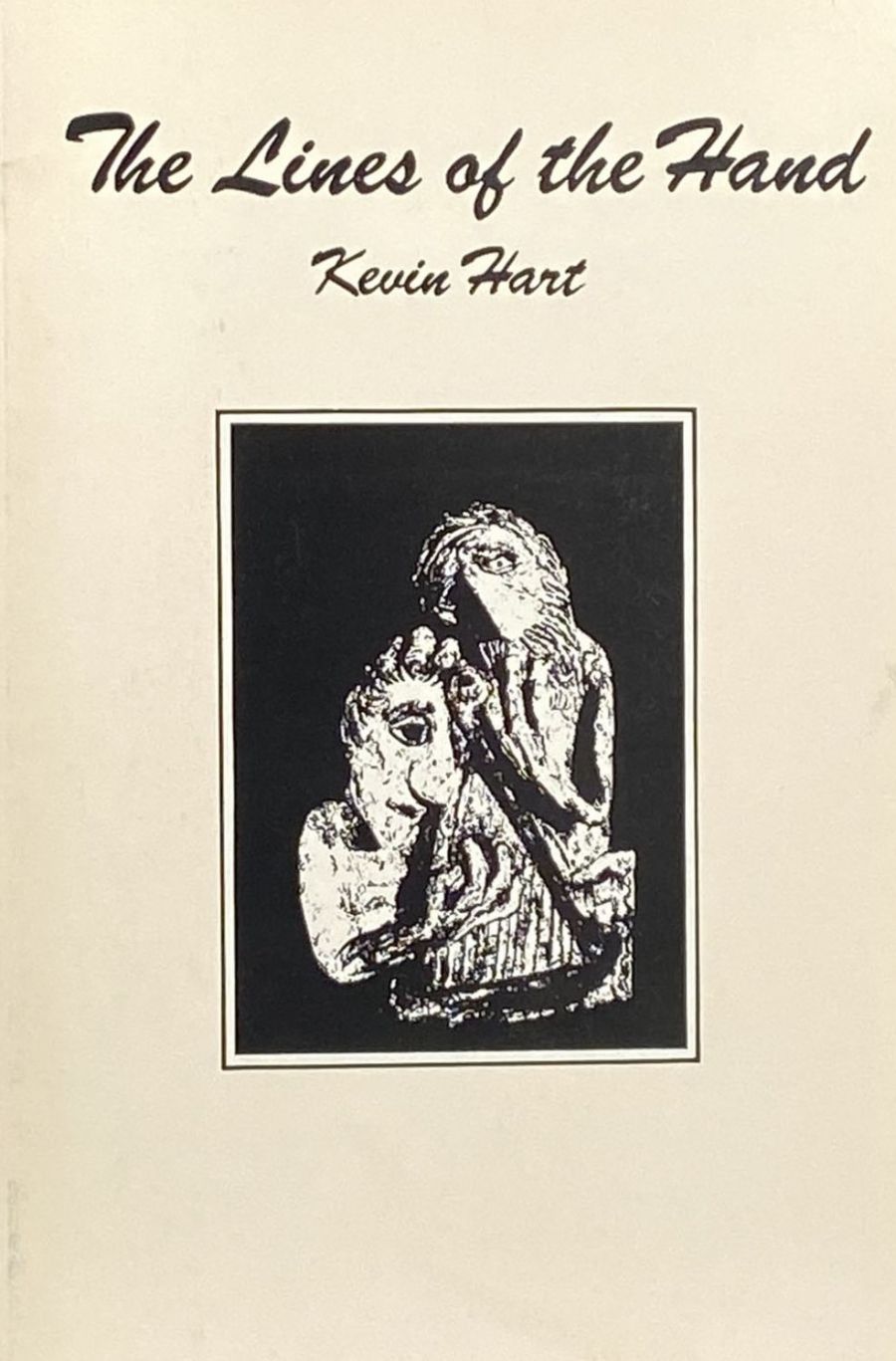
- Free Article: No
- Contents Category: Australian Poetry
- Review Article: Yes
- Article Title: Conversations with God
- Online Only: No
- Custom Highlight Text:
In an increasingly secular age, The Lines of the Hand is an unusual book. Almost half of the poems it contains are direct communications with an evident and accessible God, while others are celebrations of Creation.
- Book 1 Title: The Lines of the Hand
- Book 1 Biblio: Angus and Robertson, $6.95 pb, 59 pp
smell this incense
and stir at the kernel of all things,the wind blessing the flame,
and the sunlight easing through the
window, bringing
all the legions of the blessèd,
the dust shining in the air, the dust shining in the stone. (‘The Flame’)
He makes his declaration of faith, calls for an answer:
Now that I have left myself behind
and come out looking for you, do not hide from me …
show me at least your hand. (‘Rorate Caeli’)
He calls on the ‘Master of Silence’, ‘Master of Solitude’, but after saying, ‘alliances like this have worked before’, comes to perceive this silence as the manifestation of holiness, and sets himself to make his soul while he slowly learns from the ‘Master of Light’ how to adjust, ‘For I cannot remain the way I am’.
Considered objectively as literature the poems of direct religious experience are not always among the best in the book. A contemplative, concerned Hart considers the ethical aesthetic substance of life, turning to natural things, weather, flowers, small creatures, and to cities and people for his metaphor. And particularly to the moon, whose remoteness, silence stand as a metaphor for the unanswering God. In these poems his language is more effective, escaping religious cliche, and the occasional echo of Hopkins, into a more inventive mode, as when he says in ‘Full Moon’:
and be with you for ever
and see things from your height,
and breathing world turning in darkness,
the clock passing its rotting goods from hand to hand.
Resonances of other contemplative poets are here, a condition of the subject matter. We find that bargaining with God to be found in both Eastern and Western religious verse. At times Hart’s tone reminds me of the Indonesian poet Amir Hamzah. We have, however, love poems, landscapes, a poem written after returning from Prague, one about watching Nadia Comăneci perform, but still we find the same preoccupations, with time, with perfection, with solitude. ‘The Border’ could well be, not a traveller’s poem, though many people have written of their unease when border crossing, but having read his religious poems, one is never quite certain that all life is not, in symbol, the religious journey.
We have in Kevin Hart a sensitive, elegant poet, though reading this book in the light of later work (these poems were written pre-1981) one realizes how far he has developed already to outmatch them. Take for example his ‘Mattara’ poems.
The impression that says with me after reading these poems several times is still my first impression, of a declaration of faith, that:
new flesh
will stretch across these bones
that the trees of the field will clap their hands. (‘The Clapping Field’)
The Polish Immigrant by Peter Skrzynecki
Phoenix Publications, 79 pp
Another God appears in Peter Skrzynecki’s poems, the god of circumstance, moving the migrants around like pieces on a board, putting them into places where they must adapt and adapt again.
That they retain the God of their origins testifies both to their strength and their separateness. Even though the parents seek to advantage their son, he retains a sense of difference and his origins cannot be forgotten. The strongest concern in the life of this migrant child continues to be his own identity, he having not grasped whole the Australian ethos, while half-disallowing and yet hankering after the roots severed early.
In ‘Ancestors’ he asks:
Who are these shadows
that hang over you in a dream …Where do they point to
from the circle around you? …From across the plain
where sand and grasses never stir
the wind tastes of blood.
As Skrzynecki was quite a small child when the family migrated, some of these poems are built on tales told by others, but their narrative is important as a record of feeling. Such poems as ‘Immigrants at Central Station’, ‘Migrant Hostel’, ‘Parkes’, define the experience of so many who are now nearing the end of their lives, impressions that could be lost to us.
There is most vitality in those poems which speak of his own direct experience, as in the tender poem for his father Felix Skrzynecki, the sketch of his practical mother, the neighbours. These poems are what they are saying, their manner simple and direct. There are few overtones, the verse wanting, perhaps, some tightening, and a surer control of line lengths. But they are poems that needed to be written as evidence of the migrant experience.


Comments powered by CComment